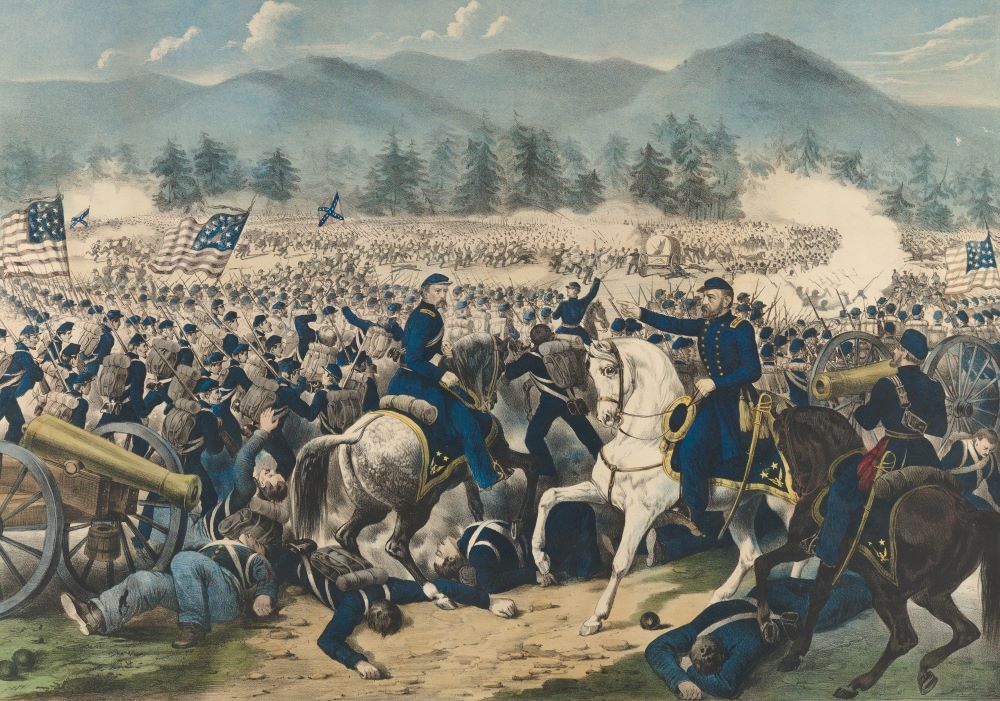New book examines the cultural roots of our political crisis

When James Davison Hunter publishes a book, people have to take notice. Hunter’s 1991 book Culture Wars: The Battle to Define America provided the most useful – and most frequently used – metaphor for the political changes of the late 20th and early 21st centuries. His new book, Democracy and Solidarity: On the Cultural Roots of America’s Political Crisisdoes the same for the present, pointing to the most fundamental question our country must face and answer: Can our democracy survive when the cultural sources of social solidarity dry up and no longer produce a common myth that unites Americans?
Hunter begins with a detailed and nuanced historical overview. Today I will focus on that part of the book. On Monday we will finish by looking at how Hunter analyzes the present.
Hunter’s historical inquiry is conducted through a sharp historiographical lens, as he makes clear. “While it is true that politics is primarily about the use and administration of power, for it to be about more than power—about justice, freedom, or equality, for example—it requires a realm that is relatively independent of politics,” he writes. “That is why culture is ultimately prior to politics.” He argues that “every culture implicitly asks and deals (in various ways) with these proto-philosophical questions—the questions of metaphysics, epistemology, anthropology, ethics, and teleology.” And so Hunter swims against some powerful academic currents that analyze only power, or at best consider ethics separate from anthropology or metaphysics.
It is this deep cultural analysis that makes the book so easy to understand for Catholics, who know that reducing politics or religion to ethics is the first step to misunderstanding.
Another critical point that Hunter makes right at the beginning and repeats several times throughout the book: these deep cultural sources he examines are most powerful when they are implicit, when they are so widespread and ingrained that they do not need to be mentioned. This is why so many attempts by nonhistorians to engage with history fail: they fail to recognize what was unspoken in their speeches and unwritten in their correspondence, what was in the air that people breathe.
Regarding the founding, Hunter argues that “the layers of social thought that gave rise to liberal democracy took shape as a kind of Enlightenment hybrid, a mixture of cultural sources that drew from many different streams of thought and action.” The hybrid had to be opaque enough to allow people who understood concepts such as “liberty” and “equality” very differently to forge a “positive solidarity” that established “common understanding and shared affection.” It was not enough then—and it is not enough now!—to have a negative solidarity, “a coming together that arose in response to the presence of an enemy, or perhaps in response to a crisis.”
The hybrid Enlightenment was not just a softening of Voltaire’s rough edges with Calvin’s rough edges. Hunter notes, “The Enlightenment in America bore a Calvinist moral sensibility even as it rejected the doctrines of original sin, the divinity of Christ, the Trinity, the existence of miracles, and the like. The reason for this was that everyday personal and social ethics were essentially the same.” Founding-era syncretism was consistent but uneven, providing space for deists and orthodox Christians. What it produced were new ideas about citizenship in which “ordinary people had the opportunity to determine the framework of public life.” This led to endless political disputes because people meant different things by ideas like liberty and equality, but these ideas had a force of their own, strong enough to unite early Americans in a sense of common purpose.
In the first half of the nineteenth century, the democratizing force of the Second Great Awakening had a profound impact on national self-understanding, and “revivalist evangelicalism dominated the cultural logic of public life during this period.” Hunter looks closely at Lyman Beecher, who embodied the interpenetration of religious and political ideas in the antebellum period and forged a narrative in which America was a new Israel and from which emerged all the various efforts at social reform, including the abolitionist movement. During this period, America was not just a nation of Christians; it was a Christian republic, and fully conscious of it.
I asked Hunter how the millennial understanding of America’s destiny he catalogued in the prewar period relates to today’s concerns about an often ill-defined Christian nationalism.
“I think we’re seeing a couple of things,” he told me. “One is that for most of American history, certainly since the founding, particularly in the first two-thirds of the 19th century, but also into the mid-20th century, Christianity in all its complexity was at the center of elite institutions of cultural formation.” In short, the slogans about “Christian nationalism,” whether for or against, misunderstand much of American history.
Hunter focuses on the many ways in which Americans fought with one another over their shared national myth, and the many ways in which the country as a whole fell short of its stated ideals. He examines the “boundary work” of national identity at every stage of history, how enslaved African Americans, Native Americans, Catholics, and Mormons were all held in the category of “Other” until they were no longer, and how institutions like the black church and movements like the abolitionists all grew out of the shared, democratized Christian heritage that included slaveholders in the South. As he said, the national myth must be opaque!
The Civil War remains the moment in American history when the country failed to “work through” the tensions in its national myth. The anthropological conflict in the search for an answer to the question “Who is a person?” could not be resolved. The differences were categorical. “The inability to resolve these contradictions in national life rationally, constitutionally, or theologically meant that they could be resolved coercively, through military strategy and power,” Hunter writes.
Towards the end of the war, Abraham Lincoln delivered his second inaugural address. Hunter repeats Alfred Kazin’s observation that this speech represented the high point of the Age of Faith. He then makes a claim that I found puzzling: “By taking sides in the war so prominently and by heightening the moral risks of the conflict, biblical faithas a matter of fact, had discredited itself as a source for the interpretation and direction of political affairs and the direct influence on public life.” I would have thought that the Union side would have felt vindicated by the outcome of the battle. Hunter argues that the loss of authority of religion in public life began to wane at this moment.
I asked Hunter about the claim that with the end of the Civil War, religion began to lose its cultural authority.
“I don’t think they were even aware of it,” he told me. “I think the disaster of the Civil War was not just the death toll, but the number of wounded, which was much higher. It certainly destroyed the economy of the South, given the nature of health care at the time, but it was just — the nation was just run over by a truck.”
“Something was done quickly with the Emancipation Proclamation and the 13th, 14th and 15th Amendments to get the ship back on course and create national unity. But on an emotional and social level, this was a severe blow that was deeply intimate and permeated every aspect of the social order. The recovery from that raised a lot of doubts,” he added. “And of course, this is the period when Darwin is publishing, we see the growing Enlightenment sensibility and the promise of a kind of secular science. The Berlin model of a German university was adopted by Johns Hopkins and other major universities shortly afterward. I think a number of things came together, but not least of all was a kind of emotional aftermath (after the Civil War) on a national level.”
This thesis needs further revision, particularly in terms of the way in which elite institutions and popular imaginations interacted as these acids of modernity corroded the concept of transcendence. It is crucial for our understanding not only of our common history but also of the situation we find ourselves in today.
The decline of religion as a source of cultural authority is evident, and it is becoming increasingly difficult to claim that it has been a boon to society. Not for the first or last time, the elite institutions of cultural education have gone completely wrong! But let’s not get ahead of ourselves. I will conclude my review of this important book on Monday, when we examine Hunter’s profound and provocative assessments of our political polarization and its cultural causes.



